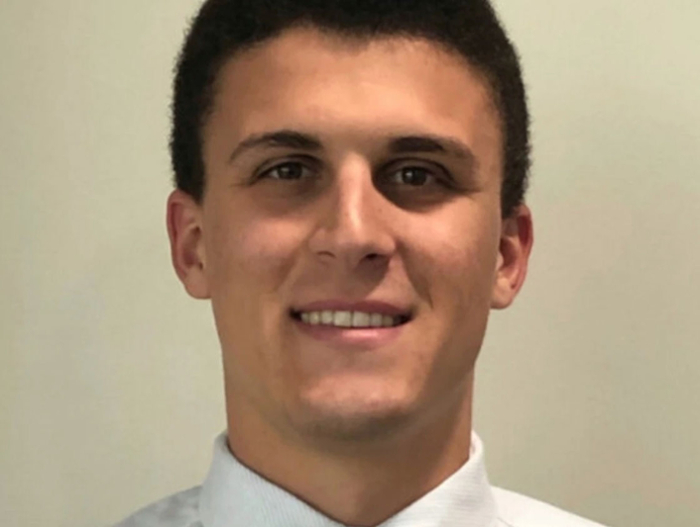“Our research team is interested in the effect physical activity has on mental, bone, muscle and heart health of children with CHD,” said Chapelski, who is pursuing his PhD through the U of S College of Kinesiology. “My personal interest is focused on the development of physical literacy through physical activity opportunities.”
Chapelski said developing physical literacy can be thought of as similar to the processes of learning to write or to do math.
“For example, when you are learning to write, you first learn the alphabet, then how to spell words, then you learn grammar,” he said. “Likewise, when we are learning to be physically literate, we first learn to walk, then how to skate, then how to shoot a puck. For all forms of literacy, educators must build up a child’s competence and confidence with simpler tasks before progressing to more challenging tasks.”
To design an effective physical activity program that could be used by children with CHD, Chapelski’s research team collaborated directly with children’s caregivers to design a six-month plan built to meet their children’s specific needs. The children then participate in the program regularly, and health outcomes are evaluated before and after their involvement.
The Children’s Healthy-Heart Activity Monitoring Program in Saskatchewan (CHAMPS) and Chapelski’s research project are supervised by U of S Associate Professor Dr. Marta Erlandson (PhD).
Chapelski said the CHAMPS program includes a workout designed to build children’s confidence in being active, alongside teaching the benefits of performing safe physical activity.
“We are providing children with CHD the tools, such as the competence and confidence to be active, and giving them autonomy over their long-term health,” Chapelski said.
Besides learning about and building healthy physical activity habits, the CHAMPS program provides a platform for children with CHD to share a special experience together and build relationships with other children who have similar health concerns, outside of the program as well.
“Although we are working with children with CHD, the development of physical literacy is essential for everyone’s long-term engagement in physical activity,” Chapelski said.
“The most interesting part of my project is the community aspect. Similar to the lasting relationships the children have made with each other, I have made lasting relationships with the families involved in the CHAMPS program.”
The last wave of participants will complete the six-month physical activity program in 2024. The research team will then explore further opportunities and barriers to physical literacy for children with CHD.
Chapelski hopes to present his research results in 2024, and then plans to pursue a post-doctoral fellowship focused on furthering research on physical literacy after completing his PhD.
“I am inspired by continued learning, collaboration, and knowledge translation,” he said. “I love learning new things and finding new ways to improve the health and well-being of others.”
The project is supported by funding from the Canadian Institutes of Health Research, the Social Sciences and Humanities Research Council of Canada, the Saskatchewan Centre for Patient-Orientated Research and the Saskatchewan Health Research Foundation.
The research team would also like to acknowledge the participants and families of CHAMPS, and CHAMPS collaborators and registered nurses Lynne Telfer, Juanita Praksis, and Marie Penner.
This content runs through a partnership between the Saskatoon StarPhoenix and the University of Saskatchewan.

